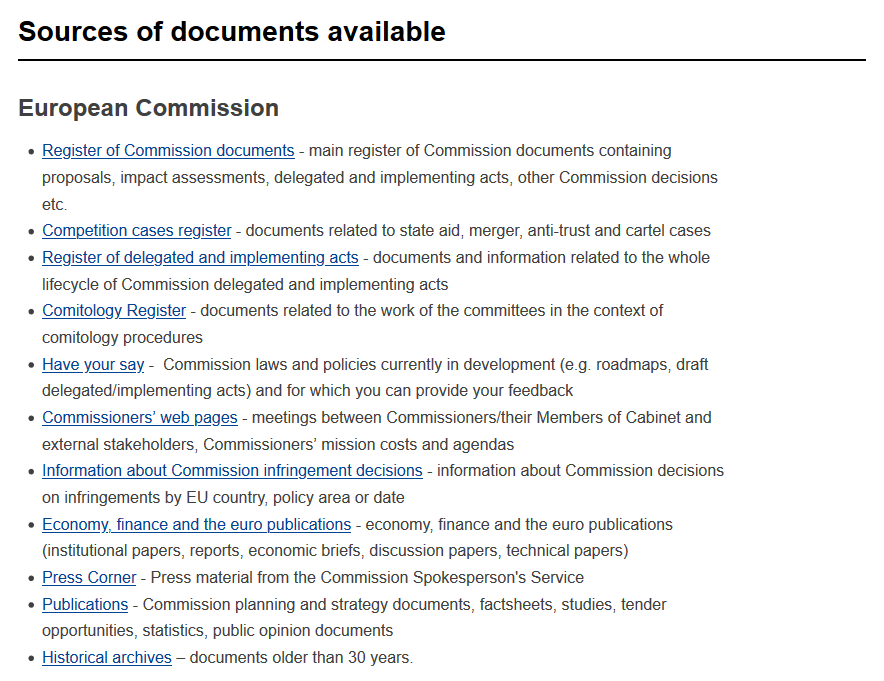New one-stop, open-source document portal should be up and running by the summer.

Previously announced plans of the Commission for the introduction of a new one-stop portal for access its documents are explicitly emerged in response to perceived shortfalls in the institutions’ discharge of duties under Regulation 1049/2001 on access to documents and are in their final stage of development. Thus reports the newsletter of the Dutch Ministry of Foreign Affairs’ European Law Expertise Centre (ECER). The findings are the result of a recent access to documents request by investigative journalist Peter Teffer, as reported in the Dutch policy magazine Binnenlands Bestuur (Home Affairs).
Falling short on law and expectation
Currently, Commission documents are only partially reported, scattered across a variety of different registers (see image below).

In internal evaluation documents, the Commission acknowledges the growing number of access to document requests under Regulation 1049/2001, and the problems that this creates for complying with legally determined responses deadlines. The new portal project was launched under the acronym EASE (Electronic Access to European Commission Documents). It should allow the Commission to proactively list or even disclose a larger number of documents, easing the pressure in terms of so-called ‘passive’ access requests (disclosure upon demand). Moreover, the portal would also make the request process more ‘legible’, allowing applicants to track progress.
The underlying IT system of the portal is also developed in open-source software, which means that it can be co-opted by lower government layers (e.g. national or regional) within the EU.
Self-inflicted administrative burden
The Commission’s failure to proactively disclose documents was subject of a recent Ombudsman complaint, in which the applicant argued that the Commission would not have to disqualify his access requests as requiring “a disproportionate use of administrative resources”, if the Commission were to proactively disclose the requested documents (regular appeal decisions in access to documents procedures), as the Council of the EU already does. The Ombudsman subscribed to this general argument and encouraged the Commission to explore the possibility of wider proactive disclosure of said document category. When the Commission committed to exploring this possibility in the context of its new access portal, the Ombudsman closed the cases.
One-stop shop legislative observatory: status unknown
A similar project for a transparency IT system, known as in EU policy lingo as the ‘one-stop shop legislative observatory’, has run a less smooth development trajectory. The proposal, which was first introduced in 2015 by a coalition of member states and later, in 2016, became part of an interinstitutional agreement on better regulation, has remained in limbo since. According to the proposal all documents pertaining to the legislative process as it travels through the legislative institutions (Commission, Parliament, Council) would be placed on this register in a easily legible and chronological manner, allowing citizens to follow legislative negotiations in (almost) real-time. Five years after it was agreed upon, the current state of this portal remains unknown.

